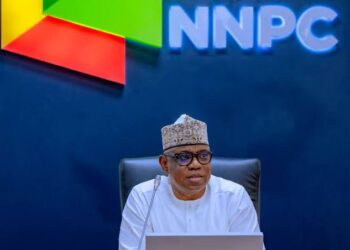President Bola Tinubu has reaffirmed his administration’s commitment to restoring peace in the troubled regions of northern Nigeria, aiming to enable displaced farmers to return to their lands and boost food production.
Speaking during his 2024 Anniversary Broadcast on the occasion of Nigeria’s 64th Independence Day celebration on October 1, 2024, Tinubu outlined the steps his administration has taken to restore security and its vision for improving the nation’s agricultural output.
The President specifically emphasized that one of his administration’s key goals is to see farmers who have been displaced by banditry and kidnapping return to their farmlands, a move that would significantly enhance food production and contribute to stabilizing the nation’s food prices.
He stressed the importance of resolving these security challenges, which have deeply affected farming communities in the North.
“We expect to see a leap in food production and a downward spiral in food costs. I promise you, we shall not falter on this,” Tinubu said.
Tinubu further detailed the progress his administration has made in combatting terrorism, banditry, and other violent extremism, which have long plagued the northern regions.

According to the President, the government’s efforts to tackle these security threats have already yielded significant results, with a focused approach to eliminating the dangers posed by Boko Haram, banditry, kidnapping for ransom, and other forms of violent extremism.
He stated that his administration is making great strides in winning the war against terror, banditry, and other forms of insecurity.
“My administration is winning the war on terror and banditry,” Tinubu said, underscoring that the government’s target is to completely eliminate all these threats and restore security to the affected areas.
Tinubu also expressed pride in the pace at which his administration has dealt with these threats, boasting that the government has eliminated terrorist and bandit commanders at a rate faster than any previous administration in the country.
He provided specific figures to support this claim, highlighting the successes of military operations in various regions.
“Within one year, our government has eliminated Boko Haram and bandit commanders faster than ever. As of the last count, over 300 Boko Haram and bandit commanders have been eliminated by our gallant troops in the Northeast, Northwest, and some other parts of the country,” the President stated.
The President expressed optimism that the removal of these high-ranking terrorists and bandits would enable the restoration of security in rural communities, allowing displaced farmers to return to their lands.
Tinubu believes that this will have a productive effect on food production and, ultimately, on lowering food prices, which have skyrocketed in recent times due to various economic pressures.
“We have restored peace to hundreds of communities in the North and thousands of our people have been able to return home. It is an unfinished business, which our security agencies are committed to ending as quickly as possible,” he said.
Tinubu reiterated that once peace is fully restored in the northern regions, the farmers can return to their farms and resume their livelihoods. He expressed confidence that this will lead to increased agricultural production and ease the pressure on food prices, helping to alleviate the economic hardships faced by millions of Nigerians.
“As soon as we can restore peace to many communities in the troubled parts of the North, our farmers can return to their farms. We expect to see a leap in food production and a downward spiral in food costs. I promise you, we shall not falter on this,” Tinubu emphasized.
Unprecedented Food Inflation;
Tinubu’s remarks come at a time when Nigeria is grappling with one of its most severe economic crises in recent years.
The country has been experiencing sharp increases in living costs, particularly due to the removal of the petrol subsidy and the unification of the foreign exchange windows, policies that were implemented in May 2023.
These twin policies have triggered inflationary pressures that have been felt most acutely in food prices.
In August 2024, the country saw significant public unrest as youths protested the worsening economic conditions, staging demonstrations for the first 10 days of the month. Nigeria’s inflation rate surged to 32.15% in August 2024, according to data from the National Bureau of Statistics (NBS).
Furthermore, the NBS revealed that the food inflation rate for August 2024 stood at 37.52% on a year-on-year basis, an alarming increase of 8.18 percentage points compared to August 2023, when the food inflation rate was recorded at 29.34%.
The NBS attributed this sharp rise in food inflation to the increased prices of essential food items, including bread, maize, grains, guinea corn, cereals, yam, Irish potatoes, water yam, cassava tuber, palm oil, and vegetable oil, among others.
The escalating prices of these basic food products have placed a tremendous burden on Nigerian households, further intensifying the challenges posed by the country’s ongoing economic crisis.
The Bola Tinubu administration, along with state governors, has rolled out several palliative measures aimed at cushioning the impact of rising inflation.
Despite these efforts, many Nigerians continue to suffer from the effects of high inflation, as the cost of food commodities and basic goods has increased at an uncontrollable rate.
While the government remains optimistic that its policies will eventually yield positive results, the economic realities for the average Nigerian remain grim.
The administration’s focus on restoring security in the North, increasing food production, and stabilizing food prices represents just one of the many challenges it must address as the nation continues to navigate its way through a period of unprecedented economic strain.

































